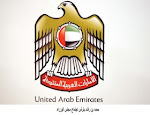And when it comes to Egypt it really is a case of buyer beware of building standards if buying property in Egypt because boy do they vary dramatically between constructors. The bottom line is that if you’re contemplating buying any unit in a high rise you need a structural engineer to check out construction techniques and even if you’re buying a low rise property you need to look at what’s being built around you…
The fact of the matter is this - Egypt has a number of fault lines and has suffered direct earthquakes, earth tremors and the after shocks of quakes in the region - it’s not a question of if Egypt will have another earthquake it’s a question of when. And while international cities in established property markets (e.g., Tokyo) regularly survive an earthquake unscathed, a city like Cairo could be catastrophically damaged by an earthquake of a relatively low magnitude.
Why? Because of the standards of construction that developers get away with in a nation like Egypt.
Not only are building standards lower than that which many of us are used to in our home countries, but they are also far less stringently observed in Egypt.
Now, to a degree we accept that a property that is being sold for under GBP 100,000 in this day and age in a nation as stunning and enticing as Egypt is going to be of a lower construction standard than Northern European or American standards for example…but while this doesn’t matter when it comes to fixtures and fittings, it does matter when it comes to foundations, the concrete mix, the thickness of steel, the use of cross bracing and base isolation and other earthquake proof construction methods for example.
Okay – so, as a buyer you now know you need to beware of building standards if buying investment property in Egypt – but how can you tell whether a building is well constructed or just well finished with paint and plaster covering the cracks? Often times you can’t – not without the services of a structural engineer who can provide you with as comprehensive a structural survey as you’re willing to pay for.
And if you think hiring their services is too costly an additional fee to pay if you’re investing with tight margins…buy low rise away from any other high rise building but be aware that any future buyer you hope to flip forward to may well commission their own structural survey and if they find faults they’ll protect themselves but it will be too late to protect your investment.
So, ‘buyer beware’ as always – and in the case of emerging markets such as Egypt, beware of construction techniques.By Rhiannon Williamson




